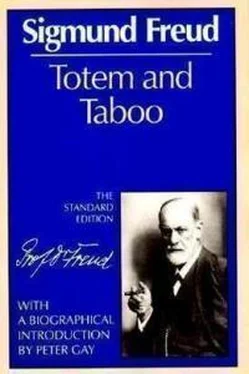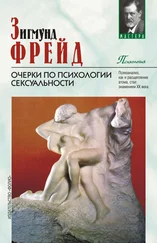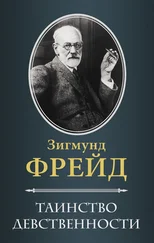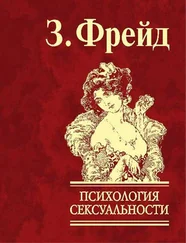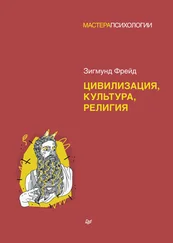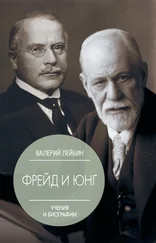Зигмунд Фрейд - Totem and Taboo
Здесь есть возможность читать онлайн «Зигмунд Фрейд - Totem and Taboo» весь текст электронной книги совершенно бесплатно (целиком полную версию без сокращений). В некоторых случаях можно слушать аудио, скачать через торрент в формате fb2 и присутствует краткое содержание. Год выпуска: 2014, Издательство: epubBooks Classics, Жанр: Психология, на английском языке. Описание произведения, (предисловие) а так же отзывы посетителей доступны на портале библиотеки ЛибКат.
- Название:Totem and Taboo
- Автор:
- Издательство:epubBooks Classics
- Жанр:
- Год:2014
- ISBN:нет данных
- Рейтинг книги:3 / 5. Голосов: 1
-
Избранное:Добавить в избранное
- Отзывы:
-
Ваша оценка:
- 60
- 1
- 2
- 3
- 4
- 5
Totem and Taboo: краткое содержание, описание и аннотация
Предлагаем к чтению аннотацию, описание, краткое содержание или предисловие (зависит от того, что написал сам автор книги «Totem and Taboo»). Если вы не нашли необходимую информацию о книге — напишите в комментариях, мы постараемся отыскать её.
Totem and Taboo — читать онлайн бесплатно полную книгу (весь текст) целиком
Ниже представлен текст книги, разбитый по страницам. Система сохранения места последней прочитанной страницы, позволяет с удобством читать онлайн бесплатно книгу «Totem and Taboo», без необходимости каждый раз заново искать на чём Вы остановились. Поставьте закладку, и сможете в любой момент перейти на страницу, на которой закончили чтение.
Интервал:
Закладка:
The typical and very often intricate scheme of organization of an Australian tribe therefore looks as follows:
The twelve totem groups are brought under four subclasses and two main classes. All the divisions are exogamous [15] The number of totems is arbitrarily chosen.
. The subclass c forms an exogamous unit with e, and the subclass d with f. The success or the tendency of these arrangements is quite obvious; they serve as a further restriction on the marriage choice and on sexual freedom. If there were only these twelve totem groups—assuming the same number of people in each group—every member of a group would have 11/12 of all the women of the tribe to choose from. The existence of the two phratries reduces this number to 6/12 or 1/2; a man of the totem [Greek: α alpha] can only marry a woman from the groups 1 to 6. With the introduction of the two subclassess the selection sinks to 3/12 or 1/4; a man of the totem [Greek: α alpha] must limit his marriage choice to a woman of the totems 4, 5, 6.
The historical relations of the marriage classes—of which there are found as many as eight in some tribes—are quite unexplained. We only see that these arrangements seek to attain the same object as the totem exogamy, and even strive for more. But whereas the totem exogamy makes the impression of a sacred statute which sprang into existence, no one knows how, and is therefore a custom, the complicated institutions of the marriage classes, with their sub–divisions and the conditions attached to them, seem to spring from legislation with a definite aim in view. They have perhaps taken up afresh the task of incest prohibition because the influence of the totem was on the wane. And while the totem system is, as we know, the basis of all other social obligations and moral restrictions of the tribe, the importance of the phratries generally ceases when the regulation of the marriage choice at which they aimed has been accomplished.
In the further development of the classification of the marriage system there seems to be a tendency to go beyond the prevention of natural and group incest, and to prohibit marriage between more distant group relations, in a manner similar to the Catholic church, which extended the marriage prohibitions always in force for brother and sisters, to cousins, and invented for them the grades of spiritual kinship [16] Article Totemism in Encyclopedia Britannica , eleventh edition, 1911 (A. Lang).
.
It would hardly serve our purpose to go into the extraordinarily intricate and unsettled discussion concerning the origin and significance of the marriage classes, or to go more deeply into their relation to totemism. It is sufficient for our purposes to point out the great care expended by the Australians as well as by other savage people to prevent incest [17] Storfer has recently drawn special attention to this point in his monograph: Parricide as a Special Case. Papers on Applied Psychic Investigation , No. 12 (Vienna, 1911).
. We must say that these savages are even more sensitive to incest than we, perhaps because they are more subject to temptations than we are, and hence require more extensive protection against it.
But the incest dread of these races does not content itself with the creation of the institutions described, which, in the main, seem to be directed against group incest. We must add a series of ‘customs’ which watch over the individual behaviour to near relatives in our sense, which are maintained with almost religious severity and of whose object there can hardly be any doubt. These customs or custom prohibitions may be called ‘avoidances’. They spread far beyond the Australian totem races. But here again I must ask the reader to be content with a fragmentary excerpt from the abundant material.
Such restrictive prohibitions are directed in Melanesia against the relations of boys with their mothers and sisters. Thus, for instance, on Lepers Island, one of the New Hebrides, the boy leaves his maternal home at a fixed age and moves to the ‘clubhouse’, where he there regularly sleeps and takes his meals. He may still visit his home to ask for food; but if his sister is at home he must go away before he has eaten; if no sister is about he may sit down to eat near the door. If brother and sister meet by chance in the open, she must run away or turn aside and conceal herself. If the boy recognizes certain footprints in the sand as his sister’s he is not to follow them, nor is she to follow his. He will not even mention her name and will guard against using any current word if it forms part of her name. This avoidance, which begins with the ceremony of puberty, is strictly observed for life. The reserve between mother and son increases with age and generally is more obligatory on the mother’s side. If she brings him something to eat she does not give it to him herself but puts it down before him, nor does she address him in the familiar manner of mother and son, but uses the formal address. Similar customs obtain in New Caledonia. If brother and sister meet, she flees into the bush and he passes by without turning his head toward her [18] R. H. Codrington, The Melanesians , also Frazer Totemism and Exogamy , Vol. I, p. 77.
.
On the Gazella Peninsula in New Britain a sister, beginning with her marriage, may no longer speak with her brother, nor does she utter his name but designates him by means of a circumlocution [19] Frazer, l.c. , II, p. 124, according to Kleintischen: The Inhabitants of the Coast of the Gazelle Peninsula .
.
In New Mecklenburg some cousins are subject to such restrictions, which also apply to brothers and sisters. They may neither approach each other, shake hands, nor give each other presents, though they may talk to each other at a distance of several paces. The penalty for incest with a sister is death through hanging [20] Frazer, l.c. , II, p. 131, according to P. G. Peckel in Anthropes , 1908.
.
These rules of avoidance are especially severe in the Fiji Islands where they concern not only consanguineous sisters but group sisters as well.
To hear that these savages hold sacred orgies in which persons of just these forbidden degrees of kinship seek sexual union would seem still more peculiar to us, if we did not prefer to make use of this contradiction to explain the prohibition instead of being astonished at it [21] Frazer, l.c. , II, p. 147, according to the Rev. L. Fison.
.
Among the Battas of Sumatra these laws of avoidance affect all near relationships. For instance, it would be most offensive for a Battan to accompany his own sister to an evening party. A brother will feel most uncomfortable in the company of his sister even when other persons are also present. If either comes into the house, the other prefers to leave. Nor will a father remain alone in the house with his daughter any more than the mother with her son. The Dutch missionary who reported these customs added that unfortunately he had to consider them well founded. It is assumed without question by these races that a man and a woman left alone together will indulge in the most extreme intimacy, and as they expect all kinds of punishments and evil consequences from consanguineous intercourse they do quite right to avoid all temptations by means of such prohibitions [22] Frazer, l.c. , II. p. 189.
.
Among the Barongos in Delagoa Bay, in Africa, the most rigorous precautions are directed, curiously enough, against the sister–in–law, the wife of the brother of one’s own wife. If a man meets this person who is so dangerous to him, he carefully avoids her. He does not dare to eat out of the same dish with her; he speaks only timidly to her, does not dare to enter her hut, and greets her only with a trembling voice [23] Frazer, l.c. , II, p. 388, according to Junod.
.
Интервал:
Закладка:
Похожие книги на «Totem and Taboo»
Представляем Вашему вниманию похожие книги на «Totem and Taboo» списком для выбора. Мы отобрали схожую по названию и смыслу литературу в надежде предоставить читателям больше вариантов отыскать новые, интересные, ещё непрочитанные произведения.
Обсуждение, отзывы о книге «Totem and Taboo» и просто собственные мнения читателей. Оставьте ваши комментарии, напишите, что Вы думаете о произведении, его смысле или главных героях. Укажите что конкретно понравилось, а что нет, и почему Вы так считаете.
